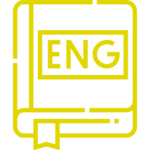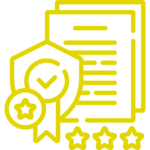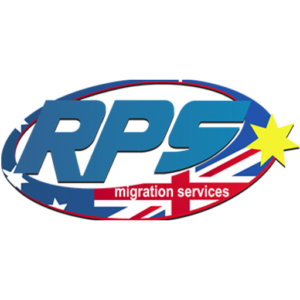Our Services
Medical Laboratory Scientist

Medical Laboratory Scientists (MLS) play a crucial role in the Australian healthcare system.
Here are some key aspects of their role:
MLS perform a wide range of laboratory tests to aid in the diagnosis, treatment, and prevention of diseases. They analyze patient samples such as blood, urine, tissue, and body fluids using various techniques and instruments to provide accurate and reliable results.
MLS ensure that laboratory testing is conducted with high standards of accuracy and precision. They follow strict quality control measures to maintain the integrity of test results, including calibration of equipment, validation of methods, and participation in external quality assurance programs.
MLS contribute to disease surveillance by monitoring trends in infectious diseases or other health conditions through laboratory testing. They help identify outbreaks, potential epidemics, and emerging pathogens. This information assists public health authorities in implementing appropriate control measures.
MLS support medical research by conducting experiments, laboratory investigations, and data analysis. They collaborate with researchers to develop new diagnostic tests or improve existing ones. Their expertise contributes to advancements in medical knowledge and technology.
MLS are involved in blood banking services where they screen donated blood for infectious diseases, blood typing, and compatibility testing. They ensure safe transfusion practices by matching donor blood with recipient requirements. This critical function helps prevent adverse reactions during transfusions.
With advances in genetics and molecular biologisms play an important role in performing genetic tests for inherited disorders, cancer diagnostics, and personalized medicine. They analyze DNA, RNA, and proteins using techniques like polymerase chain reaction (PCR), gene sequencing, and microarray analysis.
MLS work closely with healthcare professionals such as doctors, nurses, pathologists, and pharmacists. They provide consultation on appropriate test selection, result interpretation, laboratory data integration into patient care plans, and guidance on optimal use of laboratory resources. This collaboration ensures effective patient management.
MLS contribute to the education and training of future laboratory professionals. They may be involved in teaching programs for medical laboratory science students or providing continuing professional development (CPD) opportunities for practicing MLS. They share their knowledge and expertise to maintain high standards within the profession.
The role of Medical Laboratory Scientists is vital in supporting healthcare delivery, diagnosis, and treatment decisions in Australia. Their accurate and timely laboratory testing helps ensure optimal patient care, outcomes, and public health.
Contribution of Overseas-Trained Medical Laboratory Scientist in Australian Health Care
Overseas-trained Medical Laboratory Scientists (MLS) make significant contributions to the Australian healthcare system. Here are some key ways in which they contribute:

Diverse Skillset
Overseas-trained MLS bring a diverse skillset and knowledge base from their home countries. They may have experience with different laboratory techniques, methodologies, and technologies that can enhance the capabilities of Australian laboratories.

Cultural Diversity
The presence of overseas-trained MLS adds to the cultural diversity within the healthcare workforce. This diversity brings unique perspectives, experiences, and approaches to patient care and collaboration with colleagues from various backgrounds.

Addressing Workforce Shortages
Australia has experienced shortages in certain areas of medical laboratory science due to increased demand or geographical factors. Overseas-trained MLS help fill these gaps by bringing their expertise and qualifications to areas where there is a shortage of skilled professionals.

Knowledge Exchange
Overseas-trained MLS often have exposure to different healthcare systems, research projects, or advancements in their home countries. They can share this knowledge with local colleagues, contributing to professional development and fostering innovation within Australian laboratories.

Adaptability & Flexibility
Overseas-trained MLS are often known for their adaptability and flexibility in adjusting to new work environments. They bring a willingness to learn local protocols, laboratory practices, and regulatory requirements. This adaptability allows them to integrate seamlessly into Australian healthcare settings.

Language Skills & Cultural Sensitivity
Many overseas-trained MLS possess strong language skills that enable effective communication with patients from diverse backgrounds. They can provide culturally sensitive care, supporting patients who may have language barriers or specific cultural needs. This enhances patient satisfaction and improves overall healthcare outcomes.

Research Collaboration & Innovation
Overseas-trained MLS can contribute significantly to research collaborations within Australia. Their international experience, multicultural perspectives, and exposure to different research methodologies enrich scientific investigations. They may also introduce innovative approaches or technologies that they have encountered abroad.

Professional Development Opportunities
The presence of overseas-trained MLS can stimulate professional development opportunities within the Australian healthcare system. They may share their experiences, encourage knowledge exchange, and inspire local MLS to explore international collaborations or pursue further education and training.
Overall, overseas-trained Medical Laboratory Scientists bring valuable skills, knowledge, and diversity to the Australian healthcare system. Their contributions help address workforce shortages, enhance patient care, foster innovation, and promote collaboration within the medical laboratory science field.
Registration of Medical Laboratory Scientist
The registration process for overseas-trained laboratory scientists in Australia involves several steps. Here is an overview of the process:

1. Qualification Assessment
The first step is to have your qualifications assessed by the Australian Institute of Medical Scientists (AIMS) or a relevant assessing authority approved by the Department of Home Affairs. This assessment determines if your qualifications are equivalent to Australian standards

2. English Language Proficiency
If English is not your first language, you may need to demonstrate proficiency through an approved English language test such as IELTS or OET. The specific requirements vary depending on the assessing authority and registration board.

3. Application for Registration
Once you have received a positive qualification assessment, you can apply for registration with the Australian Health Practitioner Regulation Agency (AHPRA). AHPRA oversees the registration of healthcare professionals in Australia

4. National Examination
In some cases, overseas-trained laboratory scientists may be required to pass a national examination conducted by AIMS or another authorized body. This exam assesses your knowledge and competency in laboratory science practices specific to Australia.

5. Internship/Work Experience
Depending on individual circumstances, you may be required to complete an internship or gain work experience under supervision in an approved laboratory setting. This practical training provides hands-on experience and ensures familiarity with local protocols and procedures.

6. Professional Development & Continuing Education
As part of maintaining registration, ongoing professional development activities are typically required. These activities include attending conferences, workshops, and completing relevant courses that contribute to continuing education within the field.
It’s important to note that specific requirements and processes may vary depending on factors such as your country of origin, the assessing authority chosen, and any changes in regulatory guidelines. It is advisable to refer directly to AHPRA’s website, AIMS guidelines, and other relevant authorities for up-to-date information tailored specifically to your situation. Additionally, seeking guidance from professional organizations or mentors who have gone through this process can provide valuable support and advice throughout your registration journey.
Examination Process
The examination process for overseas-trained Medical Laboratory Scientists (MLS) in Australia may vary depending on the assessing authority and registration board. Here is a general overview of the examination process:
1. Eligibility
Before being eligible to sit for an examination, you must have your qualifications assessed by the relevant assessing authority approved by the Department of Home Affairs. This assessment determines if your qualifications meet Australian standards.
2. Examination Application
Once you have received a positive qualification assessment, you can apply to sit for the examination. The application process typically involves submitting an application form, supporting documents such as academic transcripts and proof of work experience, and paying any required fees.
3. Examination Format
The format of the examination may vary depending on the assessing authority or registration board conducting it. It could be a written exam, practical exam, or a combination of both.
4. Examination Content
The content covered in the examination is designed to assess your knowledge and competency in laboratory science practices specific to Australia. This may include topics such as clinical chemistry, hematology, microbiology, blood banking, molecular diagnostics, and quality assurance.
5. Examination Preparation
It is advisable to thoroughly review relevant textbooks, journals, and study materials related to Australian laboratory practices. The examining body may provide guidelines or recommended resources that can help you prepare effectively. You might also consider joining study groups or seeking guidance from professionals who have previously taken these examinations.
6. Examination Date & Location
Once your application has been processed, you will be notified about the date, time, and location of your examination. It's important to plan accordingly and make necessary arrangements for travel if required.
7. Results & Feedback
After completing the examination, the results are usually released within a specified timeframe. You will receive notification regarding whether you passed or failed. If unsuccessful, you may receive feedback on areas that need improvement. This feedback can guide further study efforts if re-examination is required.
It’s important to note that specific details regarding examinations, such as fees, format, content, and pass marks, may vary depending on the assessing authority or registration board overseeing the process. It is advisable to refer directly to their guidelines and resources for accurate and up-to-date information tailored specifically to your situation. Preparing thoroughly and seeking guidance from professionals who have gone through this process can help you approach the examination with confidence and increase your chances of success.
RPS Advantage
RPS Migration Services offers comprehensive assistance to overseas-trained Medical Laboratory Scientists (MLS) seeking registration in Australia. Here are some key aspects of their services: RPS Migration Services can likely provide guidance and support throughout various stages, including:
RPS Migration Services conducts a thorough assessment of your qualifications, work experience, and English language proficiency to determine your eligibility for registration as a Medical Laboratory Scientist in Australia. They provide guidance on any additional requirements or steps you may need to fulfill.
The agency assists with preparing all necessary documents required for the registration process, including academic transcripts, proof of work experience, professional registrations from your home country (if applicable), English language test results, and other supporting documentation.
RPS Migration Services provides comprehensive support throughout the skills assessment process conducted by the Australian Institute of Medical Scientists (AIMS). They assist with gathering all required documents and ensure that your qualifications are presented accurately to meet Australian standards.
The agency assists with lodging your application for registration with the Australian Health Practitioner Regulation Agency (AHPRA) through their online portal. They ensure that all necessary information is provided accurately and follow up on any queries or requests from regulatory authorities on your behalf.
If you are required to complete an internship or gain work experience under supervision, RPS Migration Services can guide you through this process. They help you find suitable placements, schedule enrollment, and provide advice on how to make the most out of these opportunities.
Throughout the entire registration process, RPS Migration Services maintains regular communication with you. They keep you informed about the progress of your application, provide updates on any changes in requirements, and address any concerns or queries you may have.
In addition to registration assistance, RPS Migration Services can provide guidance on visa options and help with the visa application process if needed. They offer comprehensive support for all aspects of your migration journey.
RPS Migration Services is dedicated to providing personalized and high-quality assistance to overseas-trained Medical Laboratory Scientists. Their expertise, attention to detail,and commitment to client satisfaction make them a top choice for those seeking registration in Australia.
